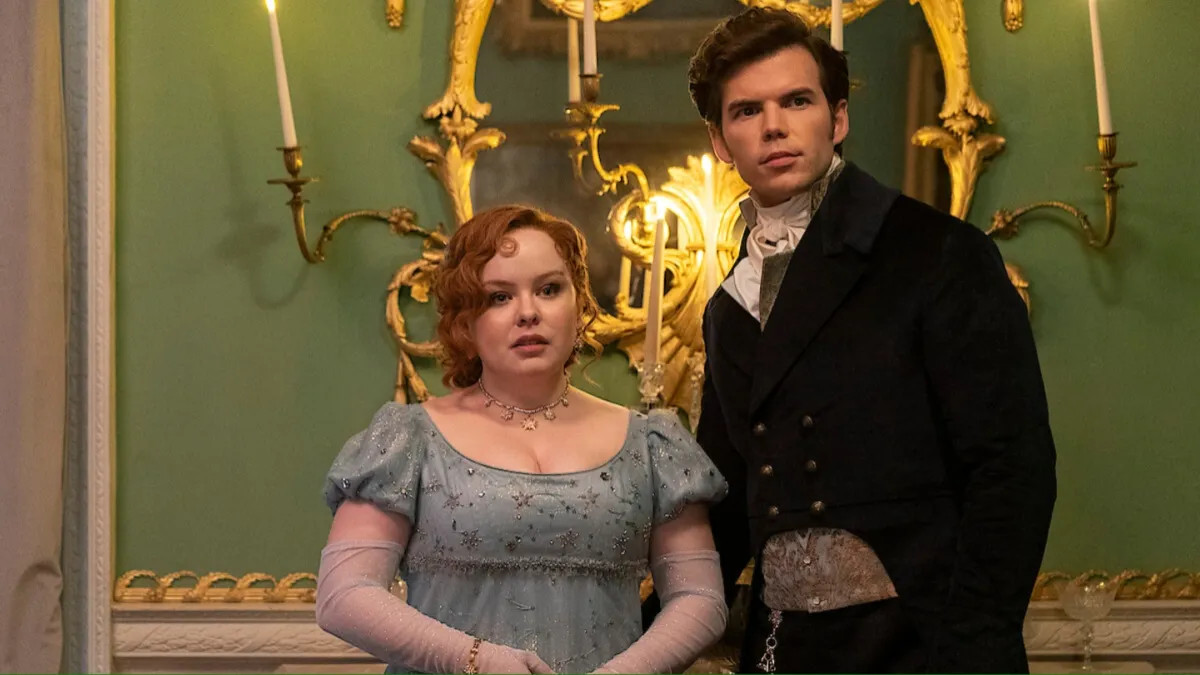I Now Fully Understand Why ‘Bridgerton’ Season 3 Needed to Be Colin and Penelope’s Story

Now that Bridgerton season 3 is finally out in full, it’s time to look at the bigger picture. Before the season premiered, there was quite a lot of grumbling about how the show was leaving the original book order in the rearview mirror—I complained about it too—but now the reasoning behind this choice is clearer to me than ever.
Unlike Daphne and Simon’s story in Bridgerton season 1 or Anthony and Kate’s relationship in season 2, Penelope and Colin’s romance had been building from the show’s very first episode. The groundwork had already been laid out in sixteen previous installments, and so, when Jess Brownell, Bridgerton’s current showrunner, explained that they used that backstory to bring Penelope and Colin’s love to the forefront this season, I sort of understood. I could see where she was coming from, yet I couldn’t help but let my love for the second Bridgerton son, Benedict, cloud my judgment.
If Daphne and Anthony could experience their epic love stories without any preamble, why couldn’t Benedict? Why couldn’t Colin and Penelope wait just a little bit longer?
Now that I’ve seen Bridgerton season 3 in its full glory, however, I can see that skipping Benedict’s story wasn’t just about the fact that Penelope and Colin already had a history together. It wasn’t about Benedict not being ready, as a character, to be a leading man yet—though this season did finally give him the chance to explore his sexuality before he is due to settle down.
Instead, once again, it all came down to Lady Whistledown.
It’s all about Lady Whistledown

Lady Whistledown was always going to play a role in Colin and Penelope’s love story. She had kept this momentous secret from him for years; not only was she hiding it from Colin, but Eloise felt forced to hide it from her brother, too. Lady Whistledown’s identity was a dark cloud over Colin and Penelope’s otherwise loving, swoon-worthy, and romantic relationship, and it was time for the truth to come to light.
Since Bridgerton season 1, Lady Whistledown’s identity has haunted and taunted the Ton and the Bridgerton family, especially. Eloise was obsessed with finding out the truth, so much so that her scrutiny led to her being examined by none other than Queen Charlotte herself, and Penelope was subsequently forced, albeit misguidedly, to protect her friend with her writing. Daphne’s story was largely influenced by Lady Whistledown naming her the diamond. And while Kate and Anthony’s relationship may not have been directly affected by Lady Whistledown’s writings, there’s no denying that Penelope’s gossip business took up a large amount of screen time in Bridgerton season 2. Lady Whistledown has always been there, in the shadows, ready to wreak havoc on society with her quill. The characters, and the show, couldn’t escape her.
So far, Lady Whistledown’s presence has been a fun and dramatic addition to Bridgerton’s narrative structure. Who doesn’t love hearing Julie Andrews’ voice over the Bridgerton trailers or during the episode openings? However, if Bridgerton had followed the order of the books, and Benedict had been the lead of season 3, Lady Whistledown’s identity would have gone from a compelling mystery plot point to an overbearing annoyance very, very quickly.
A show can only drag a conspiracy like that out for so long. Soon enough, Penelope’s web of lies would have become too complicated, and her deceit, her falling out with Eloise, and her difficulties with her family would have intruded on Benedict’s hypothetical story to the point that his own development and romantic drama would have easily been overshadowed by Penelope’s role in the narrative. Delaying the Lady Whistledown reveal by pushing Colin and Penelope’s story to season 4 would not only have negatively affected Benedict’s potential season but their own love story as well. Everything would have been focused on that, whereas now, Bridgerton season 3, part 1 was at least able to focus solely on their surprising, burgeoning love story, sans all the drama.
Bridgerton can now finally move forward
Now, as Bridgerton steadily moves toward exploring Benedict’s hesitancy to settle down, Eloise’s fear of being left behind, and Francesca’s tragic yet hopeful romantic future, the show can finally let go of Lady Whistledown and begin to explore other themes and plotlines. Penelope will still have a role, of course, and perhaps we’ll hear her voice-over narrating the show every once in a while, given she’s revealed her talents to the entirety of the Ton, but at least the story can now break free of the mold.
Lady Whistledown’s role in the show can no longer dictate the characters’ movements. Penelope can offer an analytical perspective rather than a gossipy one, and the show might be all the better for it. With less time being needed to focus on Penelope, other, more surprising plot lines can come forward—if Eloise is indeed still meant to end up with her love interest from the books, the show will need time to set that up properly and respectfully—and the series could even explore other, more imaginative sub-genres, too.
None of this is to say that I didn’t thoroughly enjoy the Lady Whistledown drama, Penelope’s character development, or her romance with Colin. I just think that Bridgerton made the right choice in resolving it now so that it can embrace a new identity in the future.
Have a tip we should know? [email protected]
